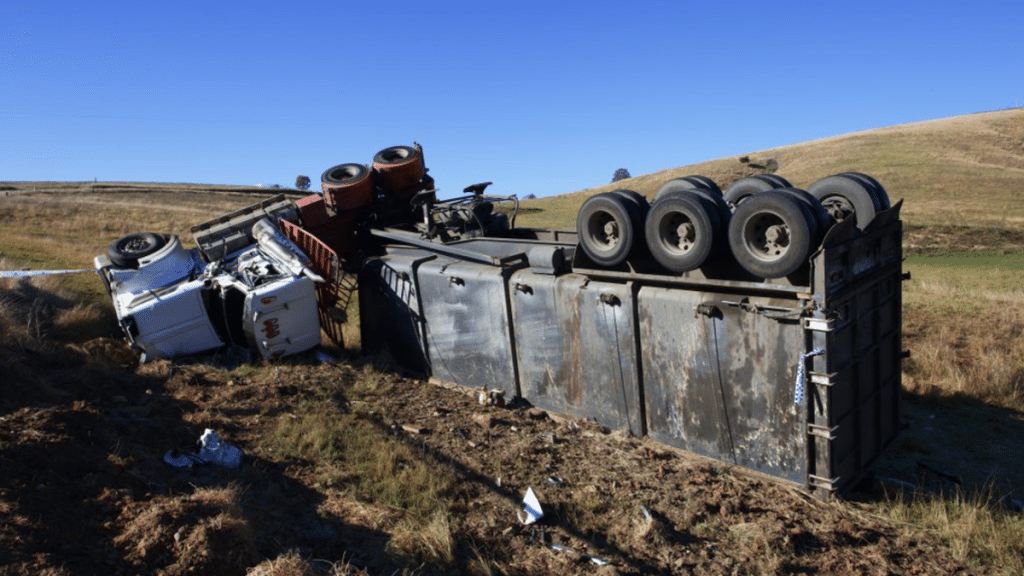A truck accident can turn your world upside down in seconds. The sheer size and force of commercial trucks often leave behind devastating injuries, extensive property damage, and life-altering consequences. When you’re the one left picking up the pieces, knowing how to fight for fair compensation becomes crucial.
California sees more than 13,000 large truck crashes annually, with thousands resulting in serious injuries or fatalities. From busy freeways like the I-5 and I-10 to rural routes, truck accidents are an unfortunate reality across the state. These collisions often involve complex liability issues and multiple parties—from trucking companies to insurers—making the claims process anything but straightforward.
This is why many victims turn to experienced truck accident attorneys in California who understand the state’s legal landscape, federal trucking regulations, and how to negotiate aggressively with insurers. The right legal support can make a world of difference in what you recover—and how quickly you recover it.
Read on to discover the key steps that can help you secure the compensation you rightfully deserve.
How to Maximize Your Compensation After a Truck Accident
1. Seek Immediate Medical Attention
Your health is the top priority. Even if injuries seem minor, some symptoms (like whiplash or internal bleeding) may take hours or days to appear. A medical evaluation creates an official record linking your injuries to the crash—a critical piece of evidence for your claim. Delaying treatment could give insurers an excuse to argue your injuries weren’t serious.
2. Report the Accident and Preserve Evidence
Call 911 to ensure police document the crash in an official report. Officers will gather witness statements, assess road conditions, and note any violations (e.g., speeding, faulty brakes). Meanwhile, if you’re able:
- Take photos/videos of vehicle damage, skid marks, traffic signs, and your injuries.
- Collect contact info from witnesses and the truck driver (including their employer and insurance details).
- Secure the truck’s black box data (if applicable), which records speed, braking, and other crucial details.
3. Avoid Early Settlement Offers
Insurers often push quick, lowball settlements—sometimes within days of the crash—hoping you’ll accept less before realizing the full extent of your injuries or losses. Never sign anything or give a recorded statement without legal advice. Once you accept a settlement, you forfeit the right to seek additional compensation later.
4. Document Every Loss Meticulously
Compensation isn’t just for medical bills. Keep records of:
- Medical expenses (ER visits, surgeries, prescriptions, rehab).
- Lost wages (time off work, reduced earning capacity).
- Property damage (vehicle repairs or replacement).
- Pain and suffering (journal entries about daily struggles can strengthen this claim).
5. Identify All Liable Parties
Truck accidents often involve multiple at-fault parties, such as:
- The truck driver (if fatigued, distracted, or under the influence).
- The trucking company (if they forced unrealistic delivery schedules or skipped maintenance).
- A cargo loader (if improperly secured freight caused the crash).
- The vehicle or parts manufacturer (if a mechanical failure occurred).
An attorney can investigate to ensure no responsible party escapes accountability.
6. Work with Experts to Strengthen Your Case
Building a winning claim often requires expert testimony, such as:
- Accident reconstructionists (to prove how the crash happened).
- Medical specialists (to explain long-term injury impacts).
- Trucking industry experts (to expose violations of federal safety regulations).
7. Negotiate Aggressively—But Prepare for Trial
Most truck accident cases settle, but insurers won’t offer fair compensation unless they know you’re ready to go to court. A skilled lawyer will leverage evidence, expert opinions, and legal precedents to demand maximum compensation for:
- Current and future medical bills.
- Lost income and reduced earning potential.
- Emotional distress and diminished quality of life.
If negotiations stall, being prepared to file a lawsuit often forces insurers to take your claim seriously.
8. Know the Deadline to Take Action
California gives accident victims two years from the crash date to file a personal injury lawsuit (or just six months if the accident involved a government vehicle). Missing this deadline forfeits your right to compensation, no matter how strong your case is.
The Bottom Line
Truck accident claims are battles against well-funded opponents. Following these steps levels the playing field, but having a legal team with deep knowledge of trucking laws and litigation tactics is often the difference between a denied claim and life-changing compensation.
Don’t settle for less than you deserve—take action now to protect your future.

